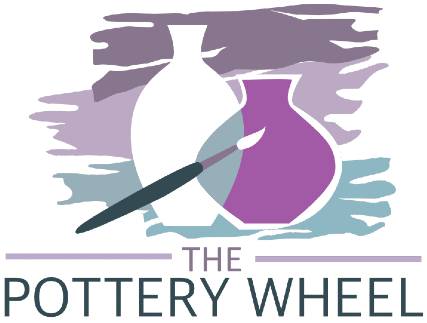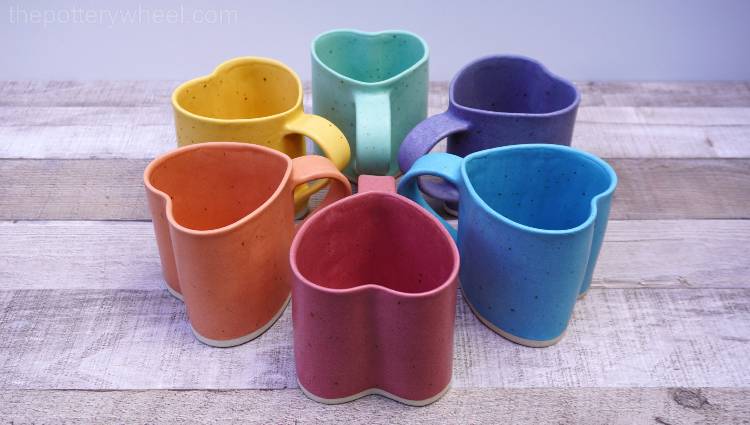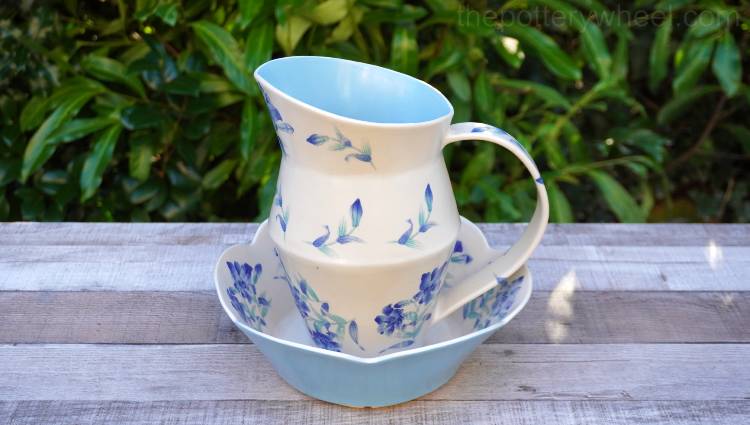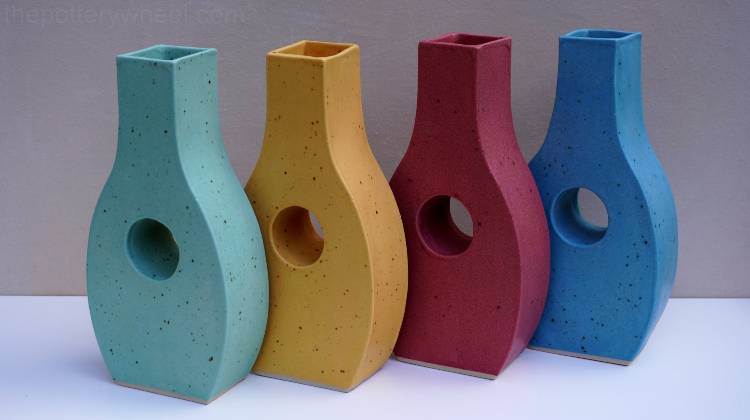Your cart is currently empty!
Is Polish Pottery Oven Safe? – Can it Take the Heat?
Published:
Last Updated:
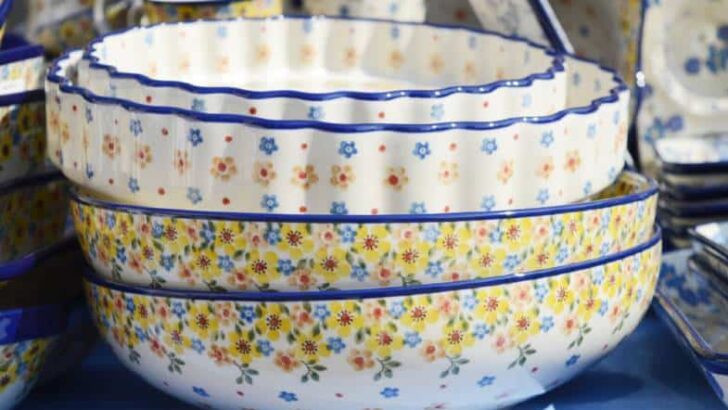
Affiliate Disclaimer
As an affiliate, we may earn a commission from qualifying purchases. We get commissions for purchases made through links on this website from Amazon and other third parties.
Ovens are now part and parcel of every household’s kitchen for faster preparation of various dishes. The biggest concern when using an oven is pondering if your ceramics are oven safe. Polish pottery is no exception to this. And if you own some pieces, you have probably wondered if Polish pottery is oven safe.
Polish pottery is acceptable and 100% safe to use in the oven. You can use the stoneware in the oven without worrying about cracking inside the hot oven. Besides, the pottery is FDA approved since it satisfies the Federal Guidance for Industry requirements on food safety and lead-free pottery.
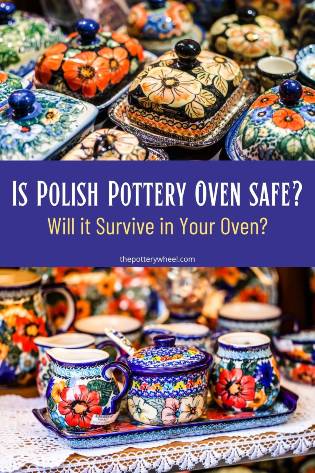
What is Polish Pottery
Polish pottery is also referred to as Boleslawiec pottery. It draws its name from Boleslawiec, a town in South Western Poland famous for its pottery culture that dates back to the 15th century. Polish pottery refers to all the products exclusively made using the fine white clay that is only native to this region.
The entire production process is done by hand, except for the firing, of course. This artistry is passed down over generations and takes a lot of man-hours to achieve the requisite quality. Despite mass production, the products are individually hand-painted to achieve high quality, gleaming designs, and patterns.
Ceramics made by accomplished artisans are usually labeled UNIKAT. Unikat is a Polish word for unique. Each ceramic features unique colors and pattern designs with the artisan’s signature inscribed on it. Usually, these pieces are rare, consequently making them very expensive.
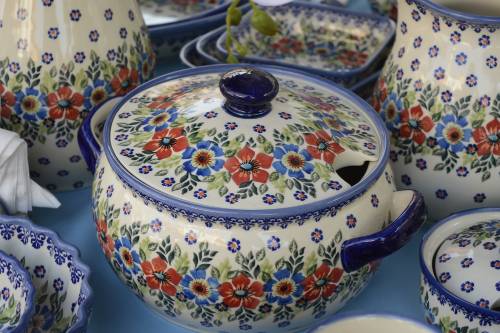
What Makes Polish Pottery Oven Safe?
These are some of the features that make Polish pottery oven safe…
Heat-Resistant Material
The white clay material from the Boleslawiec region has a dense crystalline structure and has good heat-resistant properties. The clay is fired at a searing temperature of over 2,200 degrees Fahrenheit. At the end of the firing process, the ceramic has a glassy texture but is as hard as a stone.
The glassy stoneware can easily sustain oven temperatures north of 435 degrees Fahrenheit for an extended period without the surface cracking or breaking.
Lead and Cadmium Free
Polish pottery is usually polished with lustrous glazes and adhesive designs to produce gorgeous ceramics with unique patterns. Often, glazes contain lead and cadmium elements and may leach into food if they are not properly bound into the ceramic during the firing process.
When ingested, they are highly toxic, causing a myriad of chronic diseases and developmental delays in children.
However, Polish pottery glazes are free of both these two contaminants. Each piece is individually tested at the factory level to ensure no ceramic can slip through the intensive safety process. FDA inspectors have visited major Boleslawiec factories that export to the US, double-checking pottery samples to ensure maximum consumer safety.
Non-Stick
Unlike most pots which require a Teflon coating to be rendered nonstick, Polish pottery is naturally nonstick. It will stand up to multiple washes and scrubbing, whereas Teflon coatings tend to chip and fade with repeated washing.
Additionally, the pot distributes heat evenly, making it perfect for baking and heating food without hot spots. You can whip up tasty cuisines and quickly clean up in a span of a few minutes. No soaking of the ceramics is required.
Durable
Polish pottery is extremely durable and able to withstand the rigors of daily use. Although they look delicate, Polish pottery is impervious to scratching and chipping. The painted patterns are insoluble even when soaked in water, making the high-fired, non-porous stoneware retain its vibrant colors for over a century.
Care of Polish Pottery to Keep it Oven Safe
While Polish Pottery is not fragile, here are a few tips that you should keep in mind to prolong the items’ lifespan and elegance.
Avoid Temperature Shocks
While these pots can withstand extreme temperatures, avoid sudden swings that may crack the stoneware. Ceramics take time to adjust to changing temperatures, so it is recommended to allow the pottery to attain room temperature before placing it in a contrasting environment.
Don’t take something out of the freezer and put it immediately inside the oven without allowing it to thaw first. Alternatively, put the pottery in a cold oven, then turn it on. This will allow the pottery to heat up with the oven and prevent heat shock. However, you will be required to add a few minutes to the cooking time.
Use an Oven Rack
We recommend placing the Polish pottery onto an oven rack rather than a tray. The bottom of the pot in contact with the tray usually receives much more heat. This uneven heat transfer might overcook or dry out your meal. An oven rack has better heat distribution for consistent warming or baking food.
Check on Quality
Purchase your pottery from reliable manufacturers avoiding cheap products from flea markets or street vendors. Since Unikat Polish pottery is very valuable and is highly sort after by collectors, counterfeits are also available. Most fakes are made from china or cheap porcelain and may lack authentic Polish pottery’s dimensional and sturdy attributes.
Always check the bottom of each piece for stamps and a Made in Poland logo. However, the marks can fade away, and you might not be able to decipher its authenticity. You can employ the services of a pottery specialist well versed in the intricacies of Boleslawiec stoneware products.
Cleaning Polish Pottery
Polish pottery is non-porous, so you can use soaps and detergents to clean it. However, it would be best to avoid bleaches and acidic formulations as they are highly corrosive. Also, chemical cleaners are unnecessary, considering that Boleslawiec stoneware is nonstick.
Storage of Polish Pottery
Your ceramics are best stored in a cool, dry place away from open heat sources. Before storage, use a cotton cloth to wipe off any water droplets to prevent mold growth. Do not store them near the edge of your cabinet or stack them together to avoid scratches and breakages.
Final Thoughts
Polish pottery has an exceptional heat handling capability which allows you to prepare dishes without worrying about the high heat levels. They may lack an oven-safe sticker, but you can be confident that the features outlined above make Polish pottery oven safe. Besides being oven-safe, the pottery is safe for microwaves, dishwashers, and even freezers.
